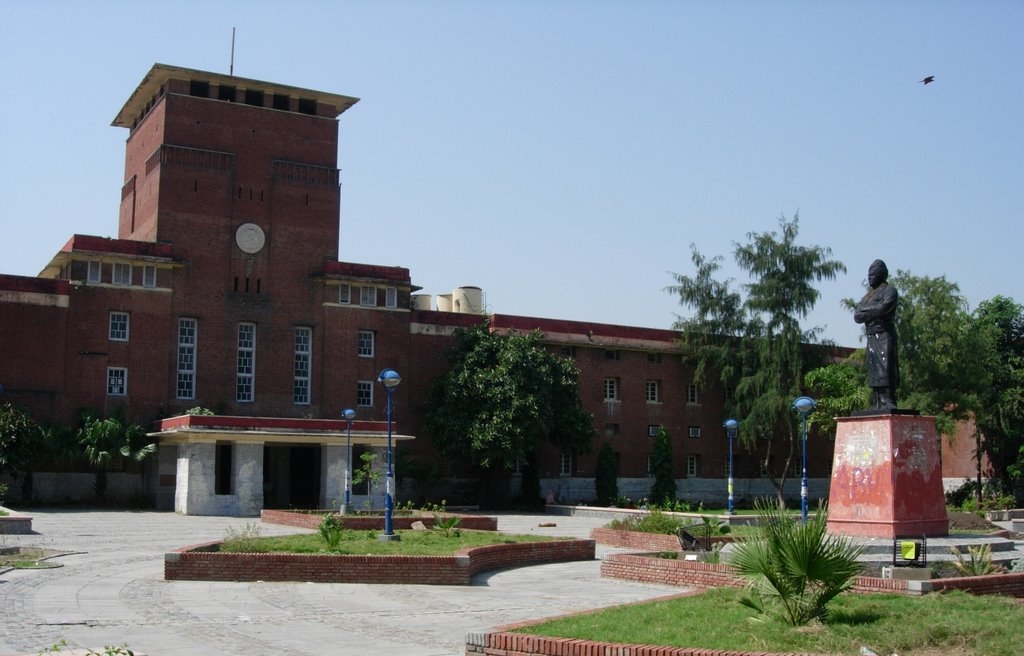There can be no denying that the Delhi University has produced some of the most outstanding student leaders, many of whom graduated to national politics and left an indelible mark on the history of this esteemed institution, which is celebrating its centenary this year.
Majority would rate former Union Minister Arun Jaitley as the most successful politician who shot into eminence over the years after being the president of the DUSU in 1974. However, a little-known fact about Arun is that the Akhil Bharatiya Vidhyarthi Parishad (ABVP) was reluctant to make him their presidential candidate and instead had virtually finalized the name of Vijay Bhatia.
Although Arun had been a part of the ABVP since he was the college president, yet he was not considered to be a hard-core RSS man; his family was a supporter of the Congress and he himself had been exploring multiple ideological options. However, he was declared as the ABVP nominee after the Congress through Bahadur Singh and Kulbir Singh, two eminent leaders tried to convince him to be the NSUI candidate. The ABVP strategists—Raj Kumar Bhatia and Ashok Tandon decided not to take any chances as they were aware of his popularity and announced his name.
Arun rose to great heights following his arrest from the Coffee House near the Vice Chancellor’s office on the first day of Emergency. He became a sworn opponent of the Congress and thus became totally committed to the saffron brigade politics.
However, other than Arun, his mentor and one-time idol, Shri Ram Khanna is considered by many as the most charismatic DUSU leader, who inspired a whole generation of students of his era. Shri Ram was not only admired but was an exceptional politician. He had defeated Deepak Malhotra, another well regarded student leader in the DUSU polls in 1972 and subsequently along with him in the same year led the biggest ever agitation where several important demands converged, against the Delhi University authorities. The then Vice Chancellor, Dr Sarup Singh rusticated Shri Ram, Deepak, Vijay Mehta and Prithipal Singh. The irony is that Shri Ram and Deepak both became lecturers. Shri Ram rose to be the Dean of the DU Commerce Department and Deepak, the principal of Dyal Singh College.
Those who have followed DU politics for a long time would concur with the general belief that Raj Kumar Jain was the best president DUSU never had. He was a firebrand socialist, who was inspired by Lohia and because of his anti-establishment stance, the authorities ensured that he never won the DUSU polls. The closest DUSU race was witnessed in 1967 when he lost by one vote to Harcharan Singh Josh.
Raj Kumar Jain was instrumental in forcing the Delhi University authorities to allow Hindi as the medium of examination. His contribution as also those of his Samajwadi Yuvjan Sabha colleagues, Lalit Mohan Gautam, Sudhir Goyal, Gopi Manchanda and Rama Shankar Singh amongst others has been always understated in the media.
The first woman to contest the DUSU polls was Madhu Kishwar, who was the president of Miranda House and the Students Federation of India pitted her against Shri Ram and Deepak in 1972. While Poornima Sethi became the first woman office bearer of DUSU in 1974, another firebrand activist, Amarjit Kaur of the AISF almost had won the secretary’s position in the same year. The feminine power had to wait till 1989 when Anju Sachdeva was elected as the first woman president of the DUSU.
Interestingly, 1971-72 had many college presidents, who later left their mark in various fields. Union Minister Hardeep Puri was the prime minister of Hindu College, Shri Ram was the president of SRCC, Deepak of Kirori Mal College, Deepak Vohra of St Stephens, R.K. Kaushik of Ramjas and Madhu Kishwar of Miranda House.
In the 1960s-70s, there were again a galaxy of leaders who emerged from the students’ union politics. Viresh Pratap Chaudhury, Surinder Seth, Subhash Goel, Harcharan Singh Josh, Ajit Singh Chadha, Subhash Sahni, Subhash Chopra and Bhagwan Singh. After the Emergency, former Union Minister Vijay Goel, Hari Shankar Gupta, Rajesh Oberoi, Vijay Jolly and Sudhanshu Mittal were immensely popular. Ajay Maken was elected as the president in 1985 after his uncle, Lalit Maken, MP from South Delhi was gunned down by Sikh militants. There was a sympathy wave for Lalit, which ensured Ajay’s win.
DUSU has also produced some eminent women leaders—Monika Kakkar, Shalu Malik, Alka Lamba to name just a few. However, over the years, the politics on the campus has changed, with most students becoming indifferent to what was happening around them. The authorities naturally have taken advantage of this situation and have minimized the role of student bodies in the university.
Whenever the history of student politics is written, there are two names which would always figure prominently. Mujib Sahib, as he was referred to by leaders from all groups, was one of the most admired gentlemen who had influenced many leaders. He was not from the DU but was the president of Jamia Millia Islamia in the mid-1960s but commanded respect of virtually every activist from various ideological backgrounds. Arun Jaitley, Shri Ram, Deepak and Rohit Bal Vohra regarded him as their guru at one time or the other.
Then there was Dhanwant Singh Gill, who spent most of his time on the campus. He was always available to write down representations at a very short notice. DU was indeed a great place. Between us.
Delhi University’s iconic leaders
- Advertisement -

